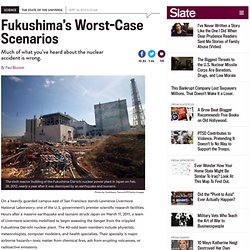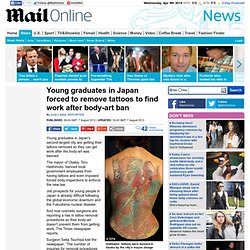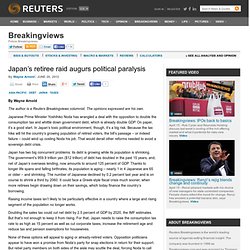

Fukushima disaster: New information about worst-case scenarios. Photo by Yoshikazu Tsuno/AFP/Getty Images On a heavily guarded campus east of San Francisco stands Lawrence Livermore National Laboratory, one of the U.S. government’s premier scientific research facilities.

Hours after a massive earthquake and tsunami struck Japan on March 11, 2011, a team of Livermore scientists mobilized to begin assessing the danger from the crippled Fukushima Dai-ichi nuclear plant. The 40-odd team members include physicists, meteorologists, computer modelers, and health specialists. Their specialty is major airborne hazards—toxic matter from chemical fires, ash from erupting volcanoes, or radioactive emissions. The scientists’ work—secret at the time and barely known to the public even today—had an enormous impact on Japan’s nuclear crisis, averting a potentially disastrous U.S. overreaction. Photo by Asahi Shimbun/Reuters President Obama's top science advisers turned to Livermore to determine the extent of the peril to the Japanese archipelago.
Google Street View sends cameras into Namie, an abandoned town in Fukushima where once 21,000 people lived - Asia - World. Click here for photos from the deserted town Rubble and roof tiles still litter the streets from the huge earthquake that dislodged them on 11 March, 2011.

A ship lies beached beside a main road, washed up by the tsunami that pummeled the coastline less than an hour later. Homes and schools sit empty and abandoned, poisoned by the invisible radioactive payload from the nearby Daiichi nuclear plant that settled over everything here in the days after the Fukushima meltdown began. Namie in Fukushima Prefecture will always be synonymous with the world’s worst nuclear disaster since Chernobyl. Like the Ukrainian city of Pripyat, it is a nuclear ghost town, gradually being reclaimed by nature.
After the tsunami, bodies lay here undiscovered for a month because nobody could be found to retrieve them. Time running out at Japan's notorious Fukushima nuclear plant after cooling facility goes down in power cut. Temperatures are rising at three fuel storage ponds at Fukushima Dai-ichi Plant bosses say they would be safe for four days: three days left to fix it The plant in northeastern Japan went into meltdown after 2011 tsunami Still running on makeshift equipment and staff accused of cover-ups By Harriet Arkell PUBLISHED: 09:35 GMT, 19 March 2013 | UPDATED: 12:02 GMT, 19 March 2013. Young graduates in Japan forced to remove tattoos to find work after body-art ban. By Daily Mail Reporter Published: 08:24 GMT, 7 August 2012 | Updated: 16:43 GMT, 7 August 2012 Outlawed: Tattoos were banned in Osaka by the city's mayor (image posed by model) Young graduates in Japan's second-largest city are getting their tattoos removed so they can get work after the body-art was banned.

The mayor of Osaka, Toru Hashimoto, banned local government employees from having tattoos and even imposed forced body inspections to enforce the new law. Job prospects for young people in Japan is already difficult following the global economic downturn and the Fukushima nuclear disaster. And now cosmetic surgeons are reporting a rise in tattoo removal procedures so their body-art doesn't prevent them from getting work, The Times newspaper reports. Surgeon Seita Tsuchiya told the newspaper: 'The number of inquiries for removal procedures has gone up from five or six a day to ten or even 30 a day.' He added that they decided to 'penalise' six employees who didn't answer the questionnaire.
Japan’s retiree raid augurs political paralysis. By Wayne Arnold The author is a Reuters Breakingviews columnist.

The opinions expressed are his own. Japanese Prime Minister Yoshihiko Noda has wrangled a deal with the opposition to double the consumption tax and whittle down government debt, which is already double GDP. On paper, it’s a good start. In Japan’s toxic political environment, though, it’s a big risk. Japan has two big concurrent problems: its debt is growing while its population is shrinking. Raising income taxes isn’t likely to be particularly effective in a country where a large and rising segment of the population no longer works. Doubling the sales tax could cut net debt by 2.5 percent of GDP by 2020, the IMF estimates.
None of these options will appeal to aging or already-retired voters. Japan to be without nuclear power after May 5. Japan switches off last nuclear power plant; will it cope?